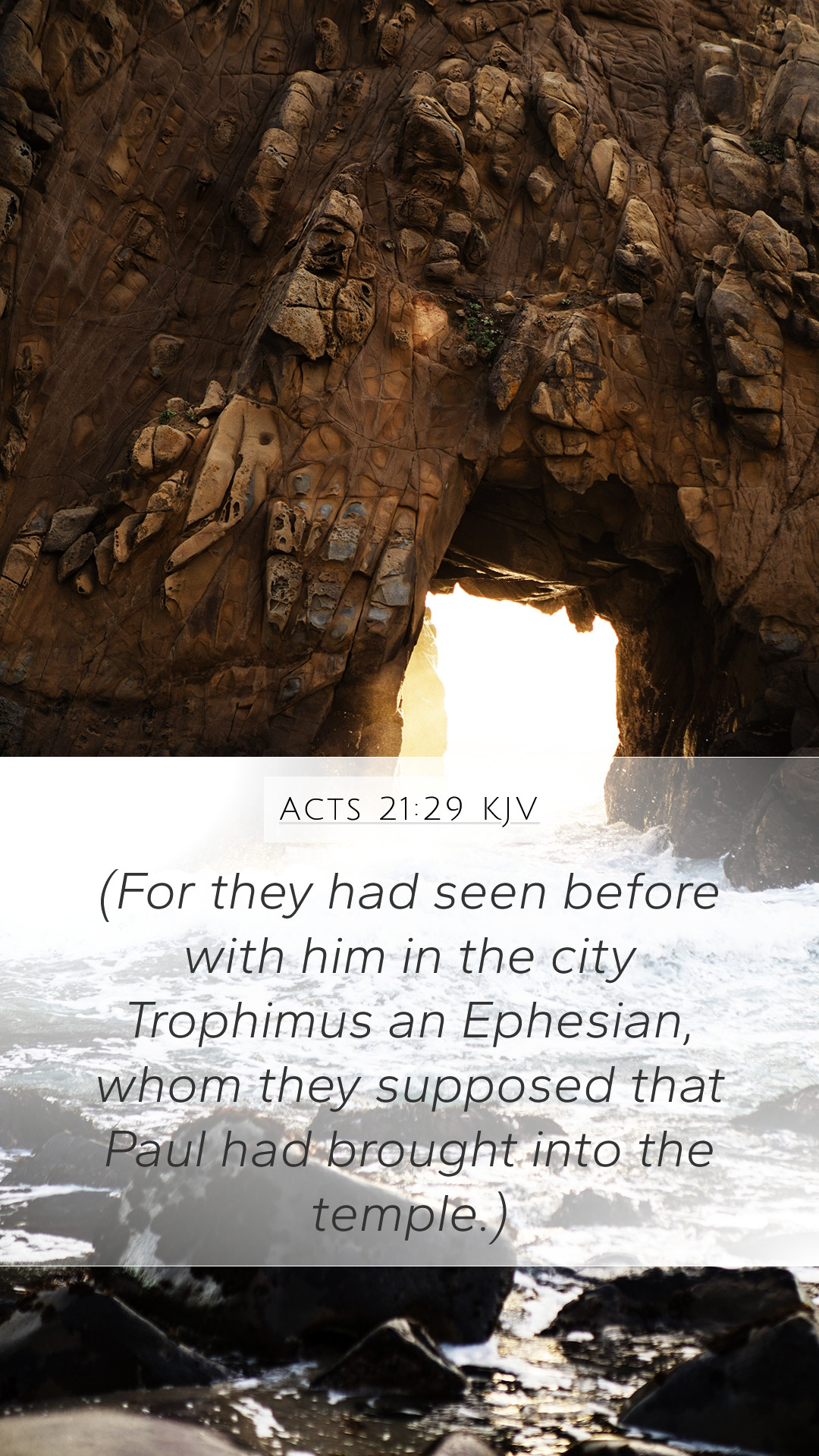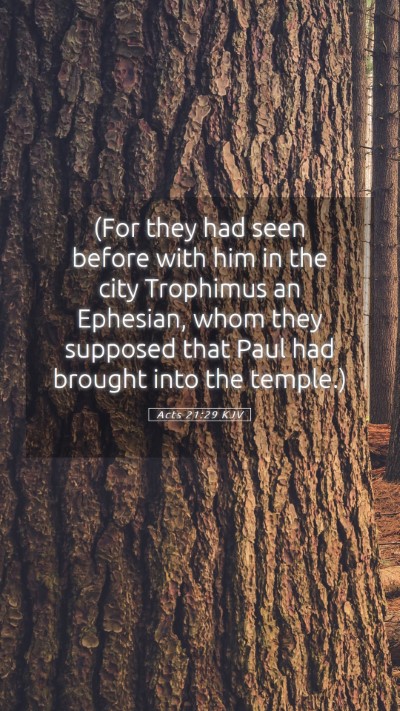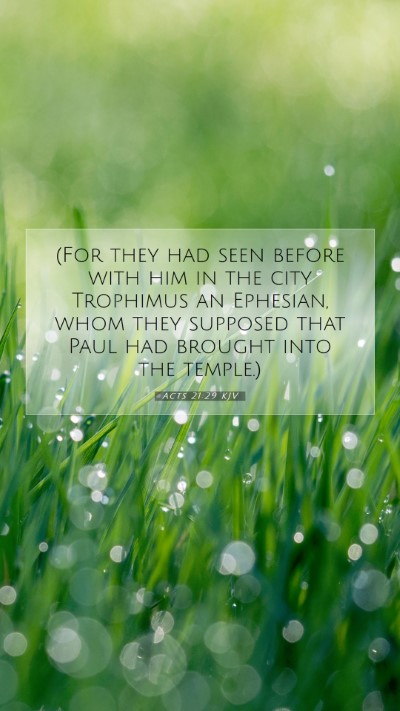Understanding Acts 21:29: A Comprehensive Commentary
Bible Verse: Acts 21:29
In Acts 21:29, we read, “For they had seen before with him in the city Trophimus an Ephesian, whom they supposed that Paul had brought into the temple.” This verse unfolds the narrative of Paul's journey and the accusations against him, illuminating key themes of misunderstanding, cultural tensions, and the implications of loyalty to the faith.
Verse Meaning and Context
This verse is situated in the broader narrative of Paul’s visit to Jerusalem, where he encounters strong opposition from the Jewish populace. The mention of Trophimus, a Gentile, highlights the tensions between Jewish law and the early Christian movement which was increasingly open to Gentiles.
According to Matthew Henry, the uproar against Paul was rooted in deep-seated prejudices. The Jews who saw Trophimus with Paul assumed he must have defiled the temple by bringing a Gentile inside, which was a serious charge in Jewish law.
Albert Barnes adds that the people's assumption reflects a broader misunderstanding of Paul's mission, which was to promote the message of Christ rather than to defile Jewish customs. This represents a turning point in the narrative, as accusations lead to misunderstandings that bring about significant consequences for Paul.
Adam Clarke emphasizes the historical context—Trophimus was a Greek, and the Jewish audience was not only wary of pollutants to the temple but also resistant to the inclusion of Gentiles in what they viewed as a Jewish faith. This moment encapsulates the early church's struggle with cultural boundaries.
Key Themes and Insights
- Misunderstanding: The assumption that Paul brought Trophimus into the temple stems from a lack of understanding of the new covenant established through Jesus Christ.
- Cultural Tensions: This event reflects the ongoing conflict between Jewish tradition and the emerging message of the Gospel that welcomed Gentiles.
- Defilement and Purity: The Jews' concern for temple purity showcases the seriousness with which they viewed their Law and the implications of defilement.
- Paul's Defense: Paul’s experiences illustrate the tangible repercussions of faithfulness and the challenges of delivering a message that transcends cultural boundaries.
Cross References
- Acts 10:28 - God’s revelation to Peter about accepting Gentiles.
- Acts 15:19-20 - The Jerusalem Council's decision regarding Gentile believers.
- Galatians 2:11-14 - Paul confronts Peter about the hypocrisy regarding Gentiles.
Applications and Reflections
As we evaluate Acts 21:29, we are prompted to reflect on our own perceptions and misunderstandings. This tension between cultural backgrounds continues to resonate in today's global faith landscape.
Applying Bible verses to daily life involves recognizing the diversity within our communities and the richness that various backgrounds bring to our understanding of Scripture.
Conclusion: Understanding Acts 21:29
In summary, Acts 21:29 invites us to ponder the complexities of faith amid cultural differences. By studying this passage, we gain insights not only into Paul’s historical context but also into our own interactions with diverse beliefs and practices within the Christian community.


